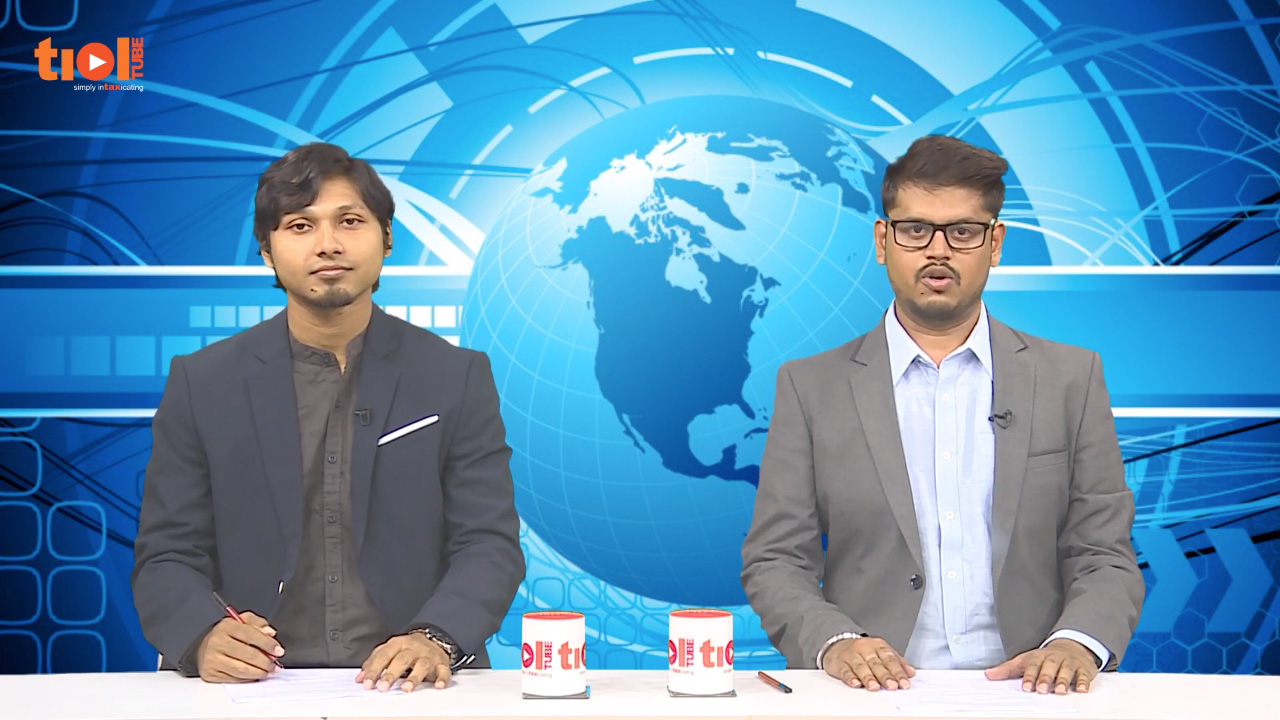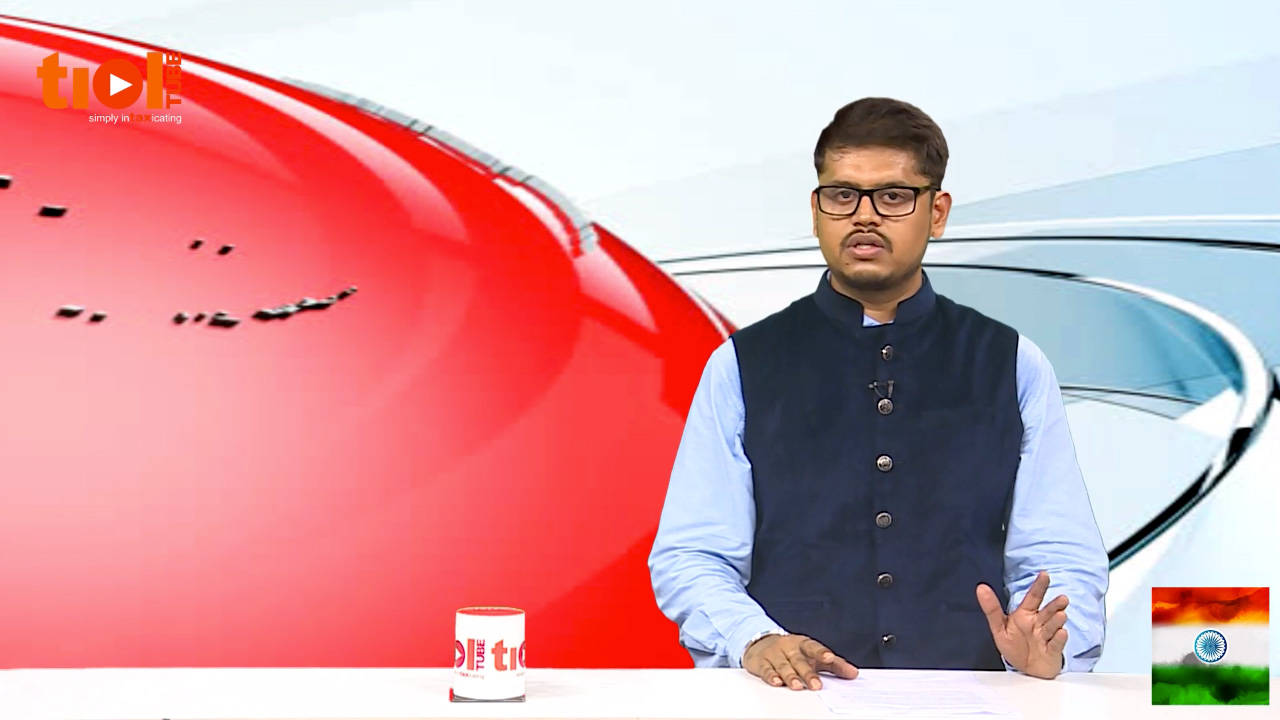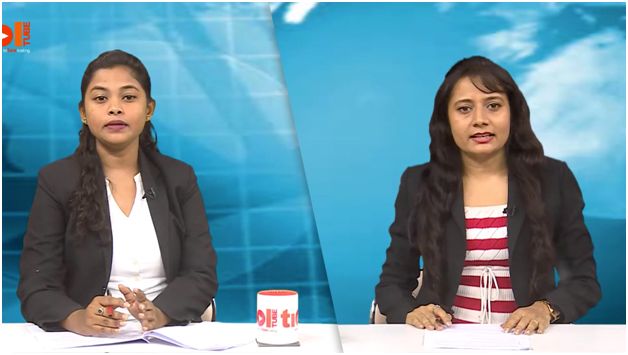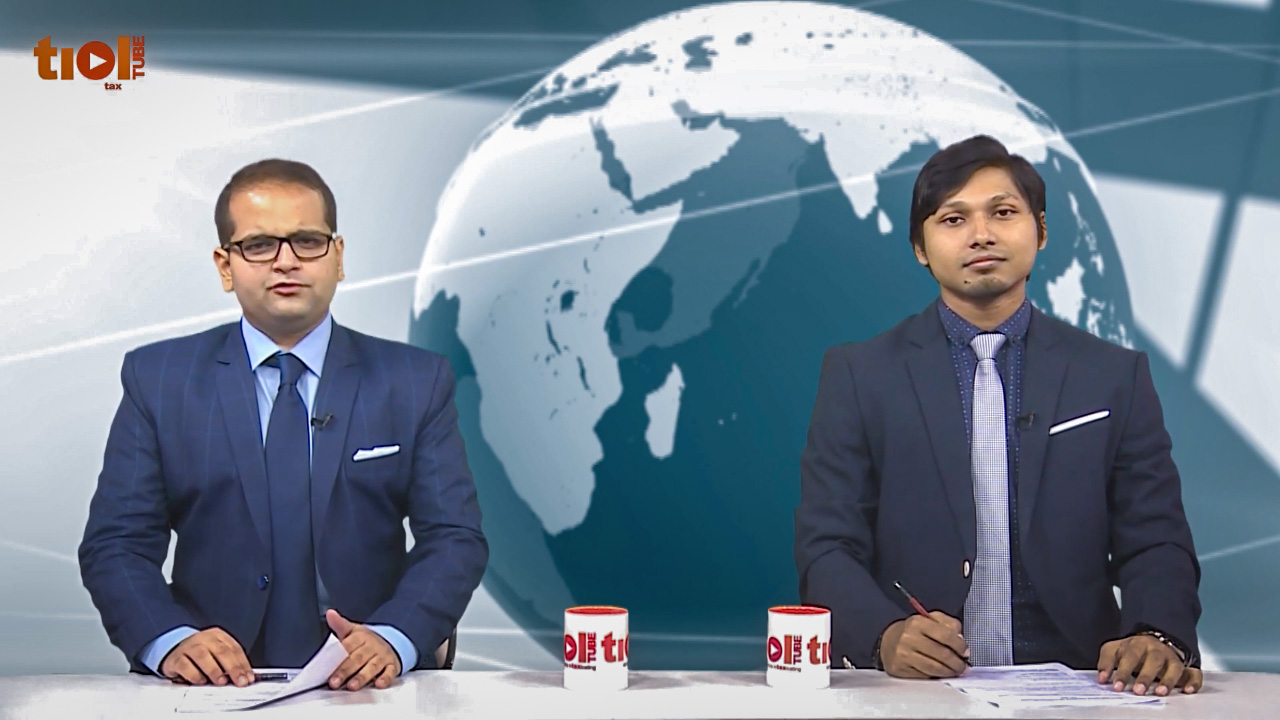|
SERVICE TAX
2019-TIOL-367-SC-ST
CST Vs Austrian Airlines
ST - The assessee-company is a leading airline operator - The Department claimed that the assessee collected fares under five heads, namely basic fare, fuel surcharge, insurance surcharge, Passenger Service Fee & (PSF) Airport taxes - The Department alleged that the assessee did not pay service tax on the PSF & airport taxes - Hence duty demand was raised with interest & penalty - Later, the Tribunal observed that the issue at hand is no longer res integra and that a similar issue was settled by the Tribunal in Lufthansa German Airlines vs. Commissioner of Service Tax - In this case, it was held that Airport tax is collected in keeping with Section 22 of the AAI Act - It was also held that PSF is charged as per the Aircraft Rules 1937 - It was further observed that such tax was shown separately on the tickets - This was found to be in compliance with provisions of Rule 6 of the Service Tax (Determination of Value) Rules, 2006 - Hence the Tribunal held that they were not to be included in the assessable value of the service - Following the findings laid down in this case, the demands raised in the present case were set aside.
Held - Delay condoned - Notice issued - Matter be tagged with C.A. No 14849/2018: SC
- Notice issued: SUPREME COURT OF INDIA
2019-TIOL-2382-CESTAT-MAD
Alstom T & D India Ltd Vs CCE
ST - Allegation is that the appellant has artificially divided the turnkey project into three contracts and paid service tax only on civil construction part of the contract; that the appellant claimed the benefit of Works Contract (Composition Scheme for payment of Service Tax) Rules, 2007 without filing prior intimation of such option as per Rule 3 to the department – appeal before CESTAT.
Held: Appeals are for the subsequent period in a matter already decided by the Bench in Appeal Nos. ST/26 and 44/2012 vide Final Order Nos.42320-42321/2018 dt. 29.08.2018 wherein it is held that Revenue had made no attempt to combine the three contracts into one mega turnkey project; that supply contract, erection contract as well as civil works contract are required to be assessed independently since the same have been executed separately by the two parties; that failing to file intimation prior to payment of service tax under the composition scheme for works contract service is only a procedural one and that the substantial benefit cannot be denied for procedural lapse – there is no reason to deviate from a well considered decision already taken, in respect of the same assesse for the earlier period - Consequently, impugned orders are set aside and both the appeals are allowed: CESTAT [para 3, 4]
- Appeals allowed
: CHENNAI CESTAT 2019-TIOL-2379-CESTAT-MUM
ADF Foods Ltd Vs CC & GST
ST - Place of Provision of Service Rules, 2012 were amended w.e.f. 1.10.2014, whereunder, no service tax is to be paid on the commission paid to the overseas commission agents - Consequently, the Appellants became eligible to claim refund of service tax paid during the period October 2014 to September 2015 - refund claim was filed 01.10.2015 - Appellants submits that approximately Rs.76,285/- is beyond the period of limitation and he does not dispute the said amount - Amount of service tax paid and covered under the period of one year from the relevant date as laid down under Section 11B of Central Excise Act, 1944 is admissible as the Appellant had reversed the credit availed on the amount of service tax paid – Nonetheless, amount paid on reverse charge mechanism basis is not hit by the principle of unjust enrichment since the amount has not been recovered from the customer – Appeal partly allowed: CESTAT [para 6, 7]
- Appeal partly allowed
: MUMBAI CESTAT
2019-TIOL-2367-CESTAT-HYD
CCE & C Vs GR Constructions
Service Tax - Assessee is engaged in providing services and has been issued a SCN demanding service tax under Commercial or Industrial Construction Service and Management, Maintenance or Repair Service - The demand was raised invoking the extended period under proviso to section 73(1) of FA, 1994 - It was also proposed to charge interest under section 75 and impose penalties under sections 76, 77 & 78 of FA, 1994.
Held: As far as demand under Commercial or Industrial Construction Service is concerned, the issue has reached a finality as the lower authority has confirmed the demand and the assessee has not contested it before the first appellate authority and has in fact already paid substantial amount of the demand - The second question to be decided is whether the assessee is liable to pay service tax under Management, Maintenance or Repair Service in respect of the services rendered by them in re-laying the surface of the roads, treating it as repair or maintenance of immovable property or otherwise - Laying a new road is different from repairing or maintaining a road - At times such repair or maintenance is only confined to filling the pot holes and at times it extends to removing the entire surface and laying a new level of bitumen and tar - The assessee's activity of removing the gravel and laying the surface of the road with their similar material amounts to Maintenance and repair of the road - However, in view of the retrospective amendment vide Section 97 of FA, 1994, w.e.f. 28.05.2012, the services rendered with respect to Maintenance or Repair of roads from 16.06.2005 to 26.07.2009 is not chargeable to service tax and if any amount was collected as service tax on this ground, the same has to be refunded - As the period in question falls within the above dates, no service tax is chargeable under Management, Maintenance or Repair service: CESTAT
- Appeal rejected: HYDERABAD CESTAT
2019-TIOL-2366-CESTAT-HYD
Mind Q Systems Pvt Ltd Vs CC, CE & ST
ST - Assessee is imparting commercial training or coaching services related to software and are registered and are filing periodical returns - Intelligence was gathered by the department that the assessee is not discharging service tax properly on the services rendered by them - Examination of the documents, records and corresponding ST-3 returns filed by the assessee showed that the assessee has not disclosed the full value of the taxable services rendered during the period - SCN issued and demand confirmed, penalty imposed and benefit of 24/2004-ST extended - assessee is in appeal before CESTAT challenging the demand of service tax upon them and penalty imposed equal to the service tax for the period 01.07.2004 to 31.03.2008 - Revenue is also in appeal aggrieved by the first appellate authority allowing the assessee the benefit of notification 24/2004-ST dated 10.09.2004 read with notification 19/2005- ST dated 07.06.2005 for the period 10.09.2004 to 15.06.2005.
Held: Bench finds that assessee has not discharged the service tax on the entire amount collected by them from the students under "Commercial Coaching and Training Services" claiming the following as exempted therefrom viz. (1) Sale of books, (2) Registration fee & (3) Examination fee for examinations conducted by Indian Testing Board - During hearing, appellant could not produce any evidence to show that the amounts on which they have not paid service tax were not part of the consolidated fee collected by them from the students for rendering commercial training and coaching services - It would have been a different case if the books in question were priced publications being sold separately under the invoice - assessee is not entitled to deductions on account of sale of books, registration fee, examination fee etc., because no amounts were collected under these heads and gross amount for total services rendered were invoiced to the students by the assessee - Service tax is leviable on the gross amount charged - Under these circumstances, Bench finds that the assessee is liable to discharge service tax on the entire amount collected from the students as fees for commercial training and coaching conducted by them: CESTAT [para 5 to 7, 10, 11]
ST - Exemption under notification 24/2004-ST as amended - Bench finds that notification 09/2003-ST dated 20.06.2003 provided for exemption to a vocational training institutes, computer training institutes as well as recreational training institutes up to 30.06.2004, however, the successor notification 24/2004-ST dated 10.09.2004 provided such exemption only to vocational training institutes and recreational training institutes - Viewed from this point of view the proviso which was inserted excluding computer training institutes from the benefit of this exemption notification is redundant because computer training institutes were not covered at all in the notification - The other way of looking at it is to view the proviso as having made an exception to the notification with effect from 07.06.2005 when it was introduced - Bench, therefore, finds that both views are possible in reading the exemption notification 24/2004-ST dated 10.09.2004 prior to 07.06.2005 - Nonetheless, as per the judgment of the Apex Court in the case of Dilip Kumar & Co. and others = 2018-TIOL-302-SC-CUS-CB, an exemption notification must be strictly construed and in case of ambiguity the benefit of doubt has to go to the revenue and against the assessee - Bench has no choice but to follow the judgment of the Constitutional Bench in interpreting this notification and hold that the assessee is not entitled to the benefit of notification 24/2004-ST dated 10.09.2004 for the period prior to 07.06.2005 also because the computer training institutes were not covered by the notification - Commissioner (Appeals) has, therefore, erred in extending the benefit of this notification to the assessee:CESTAT [para 9, 10, 11]
- Assessee appeal rejected and Department appeal allowed: HYDERABAD CESTAT
2019-TIOL-2365-CESTAT-DEL
Gurubani Security Pvt Ltd Vs Principal Additional Director General
ST - The assessee-company provides security services & manpower supply services amongst others -During the relevant period, the Revenue acted upon intelligence that the assessee did not pay appropriate service tax collected from its clients and conducted Searches at the assessee's office, whereupon several documents were seized - Other documents were recovered from the residence of the director of the assessee-company - The director of the company also admitted to have collected service tax but to not having deposited the same - Hence a certain sum lakhs was voluntarily deposited, with undertaking to deposit the remaining amount - Upon completion of investigation, an SCN was issued proposing to raise duty demands - On adjudication, the demands were confirmed u/s 73(2) of the Finance Act 1994 with interest and penalties.
Held - The assessee provided Manpower Supply Service & Security Agency service to various educational institutes and collected service tax during the relevant period - The assessee admitted to not having deposited service tax collected from the educational institute, which was not required to be collected in terms of the Mega Exemption Notfn No 25/2012-ST - The issue of contribution to PF, ESI and salary stands settled in favor of the assessee in view of the decision in Security Guards Board for Greater Bombay and Thane District Vs. Commissioner of Central Excise,Thane - Hence the demand raised merits being re-quantified after giving abatement towards salary and wages and the contribution to PF & ESI - The assessee also collected service tax not required to be collected & which is unconditionally exempt as per Notfn No 25/2012-ST - Hence the entire duty must be deposited - Also considering the decision of the Apex Court in Intercontinental Consultants and Technocrats Pvt. Ltd., the various statutory deduction the payment made towards salary and wages are, therefore, required to be deducted from the total amount charged by the appellant from the service recipient for the rendition of the service. Hence the duty demand merits being re-worked - In such circumstances, there is no justification for imposition of penalty: CESTAT
- Assessees' appeals allowed: DELHI CESTAT
CENTRAL EXCISE
2019-TIOL-2364-CESTAT-DEL CC & CE Vs SBL Industries Pvt Ltd
CX - The assessee is engaged in manufacture of Homeopathic Medicines and during the relevant period, assessee was claiming benefit of Notfn 03/2005-CE in respect of their final product "Bio-chemic System' - The said notification provides NIL rate of duty to the excisable goods falling under Chapter 30 to various medicaments used in 'Bio-chemic System' and not bearing the brand name - Inasmuch as the assessee was embossing their retail pack with word "SBL-WORLD CLASS HOMOEOPATHY" on the cap of bottles, Revenue entertained a view that such words are in the nature of brand name and as such the benefit of notification would not be available to assessee - Proceedings were initiated against the assessee for denial of notfn benefit and for confirmation of demand of duty - The said proceedings culminated into an order passed by original adjudicating authority - On appeal against the said order, the appellate authority set aside the same by primarily relying upon the Supreme Court decision in case of Astra Pharmaceuticals (P) Ltd 2002-TIOL-248-SC-CX and arriving at a finding that the expression embossed on the bottle is nothing but house mark of the assessee's manufacturing unit - Admittedly, SBL stands as an abbreviation of assessee's name and the expression 'WORLD CLASS HOMOEOPATHY' cannot be considered to be a brand name or trade name in the light of the explanation attached to the notification - Revenue, in their memo of appeal, had not advanced any justifiable ground to interfere in the impugned order - No reasons found to interfere in impugned order of Commissioner (A): CESTAT
- Appeal rejected: DELHI CESTAT
2019-TIOL-2363-CESTAT-ALL
Shimla Food And Flavours Vs CCE
CX - The appellants herein include several firms and their respective proprietors - The firms herein manufacture Gutkha, Supari and printed laminated rolls used for packaging of Gutkha - One Rajesh Gupta owns the Gutkha brand name 'Gomti' & is the proprietor of one M/s Himachal Marketing Company (HMC) - He got the goods manufactured from one M/s Shimla Chemicals & from M/s Shimla Food & Flavors - All the Gutkha manufactured by both units is purchased by Rajesh Gupta, who would also trade in the same - During the relevant period, the premises of these firms were searched by the DGCEI - A van containing 22 bags of Gutkha was found parked near the said premises - The requisite Central Excise documents in respect of the 22 bags could not be produced & so the same were seized under reasonable belief of having been cleared without payment of duty - Further search led to discovery of 35 rolls of packaging material, for which no covering challans were found - Hence these too were seized on reasonable belief of having been clandestinely cleared - Further stock-taking revealed shortage of Gutkha pouches, which was accepted by the assessee - The Revenue opined that such shortages were not explained & so had been cleared clandestinely - One CPU was recovered as was INR currency of Rs 4 lakhs, with the latter believed to be sale proceeds of clandestinely removed goods - The explanations offered by some of the proprietors were treated as being after-thought - SCNs were issued to the companies alleging clandestine manufacture & removal of goods without payment of duty - On adjudication, the duty demands proposed were confirmed with interest & equivalent penalty - Personal penalties were also imposed on the proprietors of the companies - Hence the present appeals.
Held - There is virtually no evidence on record showing that the two manufacturing units were clearing goods in a clandestine manner - The entire case of the Revenue is based on statements & if these are not taken into consideration, then no other evidence is available on record - The evidence produced by the Revenue does not establish its case even on the principle of preponderance of probability - Besides, while the demand is confirmed against the manufacturing units who were clearing their entire production to M/s HMC, whereas the evidence collected by the Revenue indicates removals made by M/s HMC itself - Since an in-depth study of the total quantum of goods purchased by M/s HMC and sale of the same to its customers is missing, the allegation of the Revenue must be treated as surmise & conjecture - Hence the duty demands raised and the penalties imposed are unsustainable: CESTAT
- Assessees' appeals allowed: ALLAHABAD CESTAT
CUSTOMS
2019-TIOL-372-SC-COFEPOSA
UoI Vs Nisar Pallathukadavil Aliyar
COFEPOSA - Petition for Special Leave to Appeal challenges the Opinion dated 22.07.2019 of the Advisory Board constituted under Section 8(a) of the Conservation of Foreign Exchange and Prevention of Smuggling Activities Act, 1974 (COFEPOSA Act) - opinion was to the effect that there is no sufficient cause for the continued detention of the above named detenu under Section 3 of the Conservation of Foreign Exchange and Prevention of Smuggling Activities Act, 1974.
Held: By its Judgment and Order dated 18.07.2019 - 2019-TIOL-279-SC-CUS passed in Criminal Appeal No.1064 of 2019 arising out of aforesaid Special Leave Petition (Criminal) No.5459 of 2019 2019-TIOL-279-SC-CUS and in other connected Appeals, Supreme Court allowed said Appeals and set aside the judgment of the High Court dated 25.06.2019 - In the meantime, in terms of Section 8(b) of the COFEPOSA Act, the case of the respondent-detenu, pursuant to the order of detention mentioned above was referred to the Advisory Board - It is a matter of record that the decision of this Court dated 18.07.2019 was brought to the notice of the Advisory Board pursuant to the requisition made by the Joint Director, Ministry of Finance, Directorate of Revenue Intelligence, Government of India - On 22.07.2019 the Advisory Board found that there was no sufficient cause for the continued detention of the respondent detenu and rendered its Opinion as stated above - Basic issue in the present matter is the nature of power exercised by the Advisory Board when an opinion is given by it pursuant to a reference made to it under Section 8(b) of the COFEPOSA Act - The report of the Advisory Board, excepting its opinion, is strictly confidential and the nature of the power so exercised by the Advisory Board in giving its report and the opinion, has already been pronounced upon by this Court in the cases viz. Dharam Singh Rathi AIR 1958 SC 152 = 1958 SCR 996 , Akshoy Konai 1 SCC 297, A.K. Roy (1982) 1 SCC 271 and Calcutta Dock Labour Board (1965) 3 SCR 453 = AIR 1966 SC 282 - It is held therein that the nature of opinion given by the Advisory Board is neither judicial nor quasi judicial; that it would be erroneous and unsafe to treat the opinion expressed by the Advisory Board as amounting to a judgment of a criminal court; that the Advisory Board does not try the question about the propriety or validity of the citizen's detention as a court of law would, but, its function is limited; that the opinion is merely intended to assist the government and it is binding on the appropriate government only if it favours the detenu and not when it goes against him; that the opinion of the Advisory Board cannot be subject matter of review or scrutiny by the judicial courts/tribunals; that the Advisory Board opinion is never intended to be open to challenge on the merits before any tribunal - Following the same, Bench holds that the present petition seeking to challenge the Opinion dated 22.07.2019 of the Advisory Board as not maintainable - Petition for Special Leave to Appeal 7016 of 2019 is, therefore, dismissed: Supreme Court [para 3, 4, 19, 20]
Held: Writ Petition (Criminal) No. 220 of 2019 is disposed of: Supreme Court [para 21]
Held: Petition for Special Leave to Appeal (Criminal) No. 7021 of 2019 is dismissed: Supreme Court [para 22]
Held: Writ Petition (Criminal) No. 210 of 2019 is disposed of: Supreme Court [para 23]
- Petiton dismissed/disposed of: SUPREME COURT OF INDIA
2019-TIOL-2362-CESTAT-MUM
CC Vs Chasys Automotive Components Pvt Ltd
Cus - Valuation - section 14 of the Customs Act, 1962 - Issue is whether the relationship between the parent company i.e. the supplier from abroad and their subsidiary company i.e. the respondent herein, has influenced the import price or not and whether the department is justified in rejecting the transaction value?
Held: Bench finds that there is no specific reason for the revenue for disregarding the transaction value, other than the suspicion that the profit margin is more than 11% - Revenue has failed to produce any evidence before any of the authorities below including this Court in support of its contention - Revenue also did not produce any document about contemporaneous import at a higher price whereas the respondent has submitted documents such as the Contract Agreement between the respondent and the foreign supplier which provides a basic idea about the terms of sale and payment, copies of invoices etc. - Revenue has also not brought out any evidence in its appeal to cast any doubt on the genuineness of the documents produced by the respondent before the Adjudicating Authority or first Appellate Authority nor provided any contrary information about sale/purchase of identical/similar goods at higher prices or any evidence of payment over and above the invoice value - Therefore, although the supplier and the respondent were 'related persons' for the purpose of Customs Valuation Rules but the relationship between them had not influenced the price - no infirmity in the order of Commissioner(A), hence Revenue appeal dismissed: CESTAT [para 8, 9]
- Appeal dismissed: MUMBAI CESTAT |







